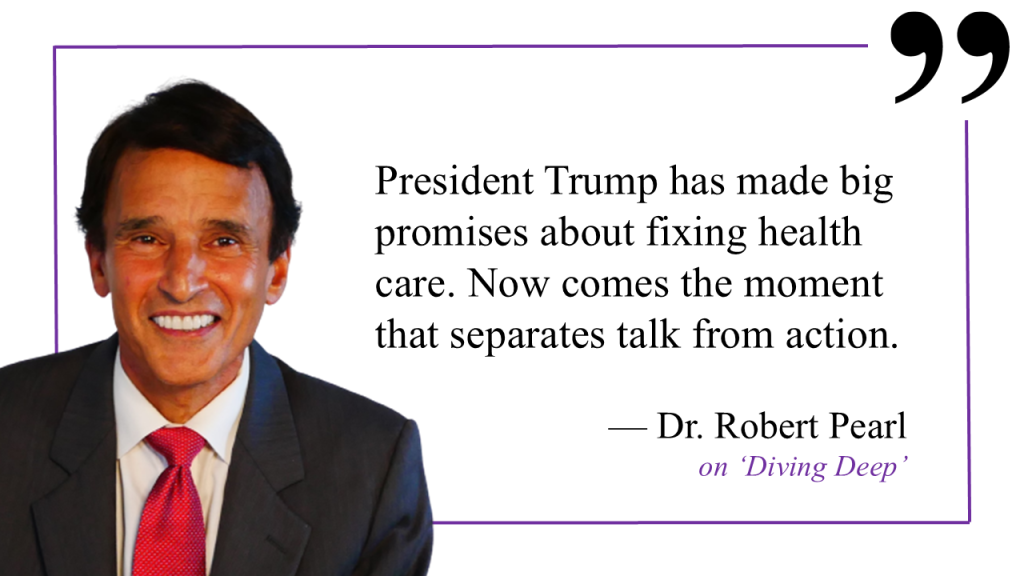Podcast: Play in new window | Download
Subscribe: Spotify | Email | RSS | More
In this episode of Fixing Healthcare’s “Diving Deep,” co-hosts Dr. Robert Pearl and Jeremy Corr examine two pressing healthcare issues through thoughtful Q&A: the impact of Trump’s healthcare promises on policy and the hidden psychological bias that impedes everything from tariff decisions to chronic disease management.
First, the hosts discuss President Donald Trump’s bold healthcare promises, including significantly lowering prescription drug prices, reversing chronic diseases and leveraging generative AI to transform American medicine. With midterm elections looming, Pearl emphasizes the urgency for real policy action rather than rhetoric. On drug pricing, he notes the significant legislative and regulatory hurdles facing Trump’s proposed solutions, such as Most-Favored-Nation (MFN) pricing. Regarding food quality and obesity, Pearl addresses RFK Jr.’s criticism of ultra-processed foods and urges the administration to move beyond symbolic reports to concrete policies, including front-of-package labeling, taxation of unhealthy foods, and stricter food additive regulations. Additionally, Pearl highlights the administration’s enthusiasm for generative AI, advocating for real-world applications to manage chronic conditions and enhance diagnostic accuracy, while cautioning against potential disconnects caused by outdated FDA processes and insufficient investment in innovation.
Later in the episode, the hosts delve into the hidden psychological traps impacting chronic disease management, particularly the Dunning-Kruger effect, a cognitive bias causing individuals to overestimate their competence. Pearl explains how this bias affects healthcare providers, resulting in clinical inertia, where doctors overestimate their control over patients’ chronic conditions such as diabetes, hypertension, and heart disease. This often leads to inadequate disease management and avoidable complications like heart attacks and strokes. Pearl suggests several strategies for overcoming this bias, including objective self-assessment against national benchmarks, proactive investigation of treatment gaps, and the use of generative AI tools such as ChatGPT to enhance patient engagement and clinical responsiveness.
This episode of “Diving Deep” underscores the importance of transitioning from political and professional promises to tangible healthcare improvements, highlighting both the potential and pitfalls in current healthcare strategies.
HELPFUL LINKS
- Talk Is Cheap: Now Trump Must Deliver On His Healthcare Promises (Forbes)
- The Hidden Link Between Tariffs, Vaccines, Chronic Disease (Forbes)
- Monthly Musings on American Healthcare (Robert Pearl’s newsletter)
* * *
Dr. Robert Pearl is the author of “ChatGPT, MD: How AI-Empowered Patients & Doctors Can Take Back Control of American Medicine.” All profits from the book go to Doctors Without Borders.
Fixing Healthcare is a co-production of Dr. Robert Pearl and Jeremy Corr. Subscribe to the show via Apple, Spotify or wherever you find podcasts. Join the conversation or suggest a guest by following the show on Twitter and LinkedIn.

